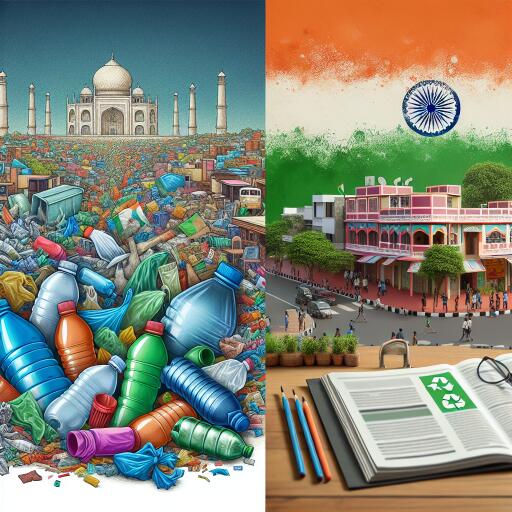
India Generates Highest Plastic Pollution in World: What’s Next for Our Plastic Problem?
The revelation from a recent study is as shocking as it is urgent: India now takes the lead globally in plastic pollution, accounting for nearly one-fifth of the world’s total. This staggering statistic places India at the forefront of an environmental crisis, surpassing other significant contributors like Nigeria, Indonesia, and even China, in terms of the volume of plastic pollution produced annually.
A comprehensive analysis published in a renowned scientific journal points out that India is responsible for generating an overwhelming 9.3 million tonnes of plastic pollution every year. This is not just a statistic but a vivid reflection of the profound environmental challenge facing the nation and, by extension, the planet.
The implications of such extensive plastic production are far-reaching. Approximately 5.8 million tonnes of this plastic are subjected to incineration annually in India, a process that releases harmful pollutants into the air we breathe, further exacerbating the pollution crisis. The remaining amount, sadly, finds its way into the natural environment, contaminating our lands, choking our waterways, and threatening marine life.
According to researchers from the University of Leeds, who conducted the study, the global scenario of plastic waste is equally bleak. Out of the 251 million tonnes of plastic waste generated worldwide each year, a large portion remains unmanaged. This unmanaged plastic waste either accumulates in our environment as debris or is burned in uncontrolled conditions. Such practices not only contribute significantly to air pollution but also have a lasting impact on climate change. The findings indicate that about 43% of global plastic waste remains unmanaged as debris, and an alarming 29.9 million tonnes are subjected to open burning, releasing toxic gases into the atmosphere.
The findings of this study serve as a critical wakeup call, illustrating the urgency with which we must address the issue of plastic pollution. They shed light on the devastating environmental impacts and underscore the need for immediate and concerted actions to mitigate this pressing issue.
What’s next for our plastic problem? The solution lies in a multifaceted approach that includes enhancing waste management infrastructures, promoting the use of eco-friendly alternatives, and fostering global collaboration to reduce plastic production and consumption. Public awareness and education play crucial roles in this endeavor, as collective efforts and behavioral changes can significantly contribute to curbing the tide of plastic pollution.
As we move forward, it’s essential to reflect on the implications of our plastic usage and take decisive steps towards sustainable living. By doing so, we not only safeguard our environment for future generations but also take a stand against a growing crisis that threatens our health, biodiversity, and the very planet we call home.





Leave a Reply